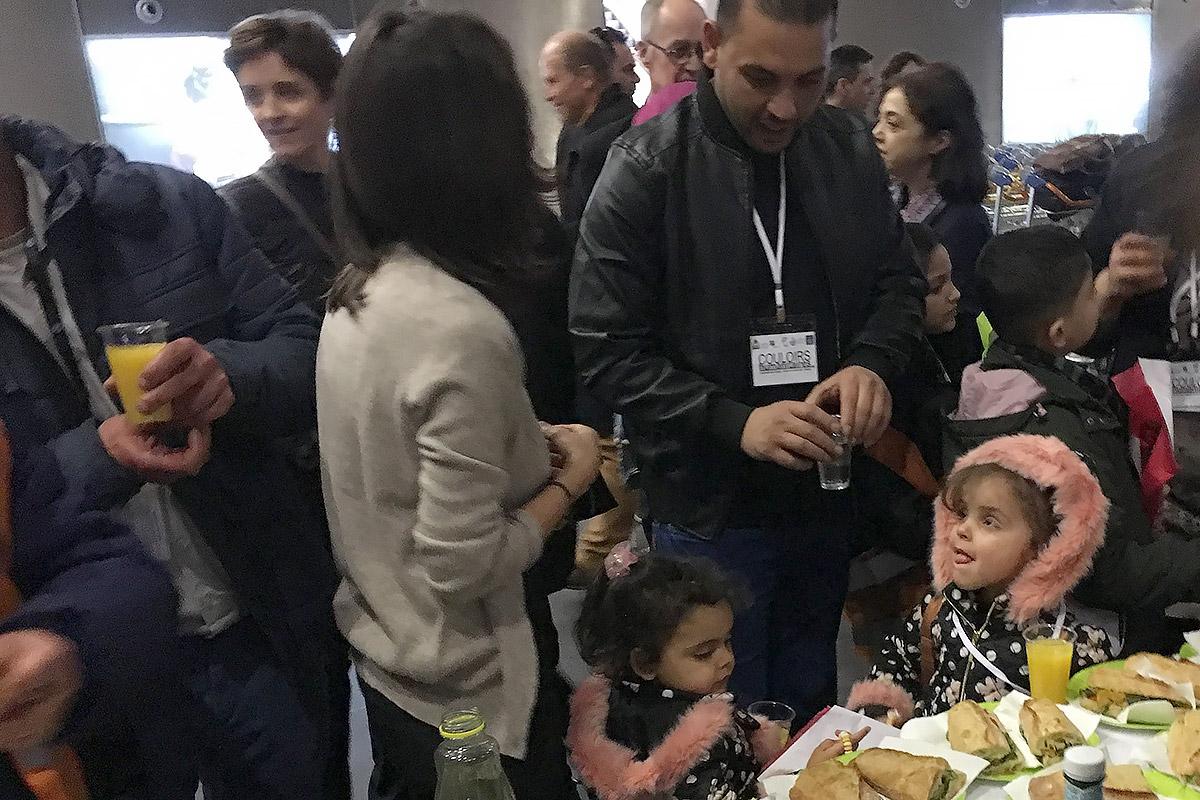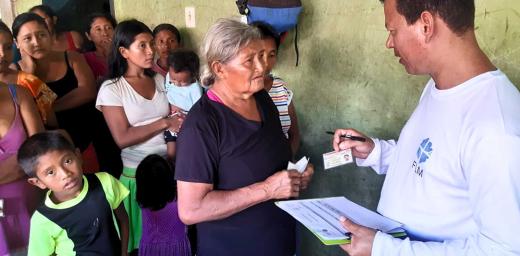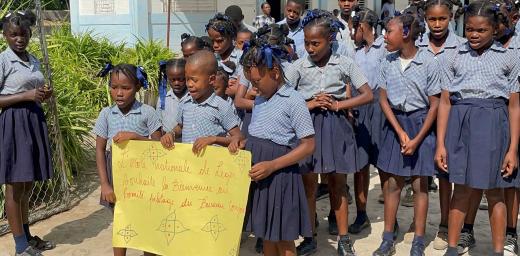Churches in France open “Humanitarian Corridors”

A volunteer welcomes 40 people from Lebanon at Charles de Gaulle airport on Monday, January 29, 2018. Families and individuals will be living in different regions, depending on reception possibilities. Photo: Jean-Michel Hitter/FEP
Safe passage for refugees from Lebanon
(LWI) - Churches in France, among them the LWF member church, have united to welcome refugees to the country. The “Humanitarian Corridors” project follows a similar example from Italy. Its purpose is to offer protection to refugees of war, and to enable them to travel safely without having to use the often fatal services of traffickers.
This project is anchored in an Italian initiative to open safe and legal routes to refugees. It was started by the Community of Sant'Egidio, in collaboration with the Federation of Evangelical Churches and the Waldensian and Methodist Churches, in 2016. The “Corridoi Umanitari” are meant to prevent refugees crossing the Mediterranean by boat, to avoid trafficking and to grant vulnerable people legal entry into Italy. Once in Italy, they are housed with the churches while undergoing the official asylum application process. The project started in Italy in February 2016.
Agreement with the government
The French version “Couloirs Humanitaires” is based on a protocol signed by the French Ministry of Interior and Foreign Affairs on one side, and the Federation of Protestant Mutual Aid (FEP), the Protestant Federation of France, Secours Catholique, the Sant'Egidio community in Italy and the Conference of Bishops of France.
This protocol authorizes the travel and entry of 500 refugees, who are currently living in Lebanon, to France, until later this year. The selected people are given travel documents and a short term visa to safely reach France, where they have to undergo the normal asylum application process. “The FEP is committed to welcome 200 people out of 500. To date, 92 people have arrived,” Patricia Rohner-Hégé, spokesperson of the Union of Protestant Churches of Alsace and Lorraine (Union des Églises protestantes d'Alsace et de Lorraine, UEPAL) says. The other people will be welcomed by the remaining partners.
The people concerned are refugees from the wars in Syria or Iraq. They are often families, sometimes also individuals, who have been selected by aid organizations working for resettlement, such as Médecins sans Frontières, Norwegian Refugee Council, Armenian Evangelical Church and various Protestant associations or by the High Commissioner for Refugees.
Before they are selected, people are interviewed by a doctor, a psychologist and an employee of Sant'Egidio, who will also present their case to the French Consulate in Lebanon. A mixed team of FEP/Sant'Egidio staff, residing in Lebanon, accompanies the refugees selected in obtaining visa and other travel documents. It informs them of the reception and accompaniment framework in France, the sometimes complex and lengthy bureaucratic process they need to follow to apply for asylum, the need to be both patient and proactive and certain aspects of life in France.
Journey into a new life
A flight is then organized at the beginning of each month between Beirut and Paris. When the refugees land in Paris, they must begin the regular process of applying for asylum to obtain international protection. During their stay in France, they are hosted by volunteers who provide accommodation free of charge.
The faith organizations involved in the project also do a remarkable job of promoting the legal channels of access to French territory to the public authorities. They set up a dynamic of partnerships between public services, volunteers and asylum professionals in church circles.
In addition, they are accompanied by groups of volunteers and asylum professionals. A trusted third party is appointed to ensure continuity of support and, if necessary, mediation between the actors. Since 2015, the FEP in the east of France has welcomed and accompanied 125 people. All but two obtained residency. Twenty found jobs and ten are in training.
“The faith organizations involved in the project also do a remarkable job of promoting the legal channels of access to French territory to the public authorities,” Rohner-Hégé said. “They set up a dynamic of partnerships between public services, volunteers and asylum professionals in church circles. They help create networks committed to sponsor a family, or individual, to accompany them in everyday life, teach them French, enroll children in school and include them into the social fabric of the village or city where they are hosted.”
Contribution by UEPAL/ Patricia Rohner-Hégé





